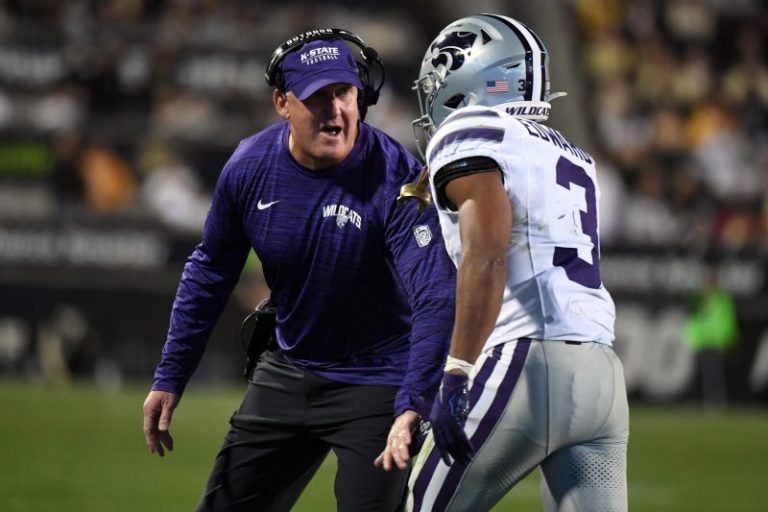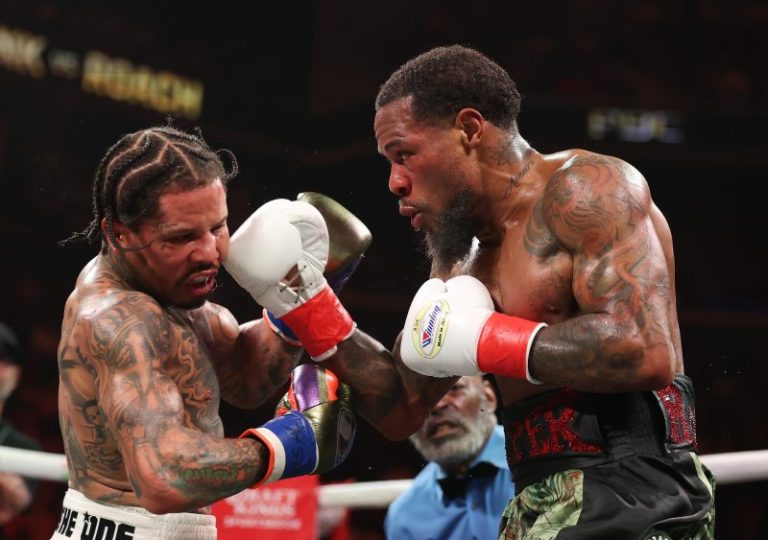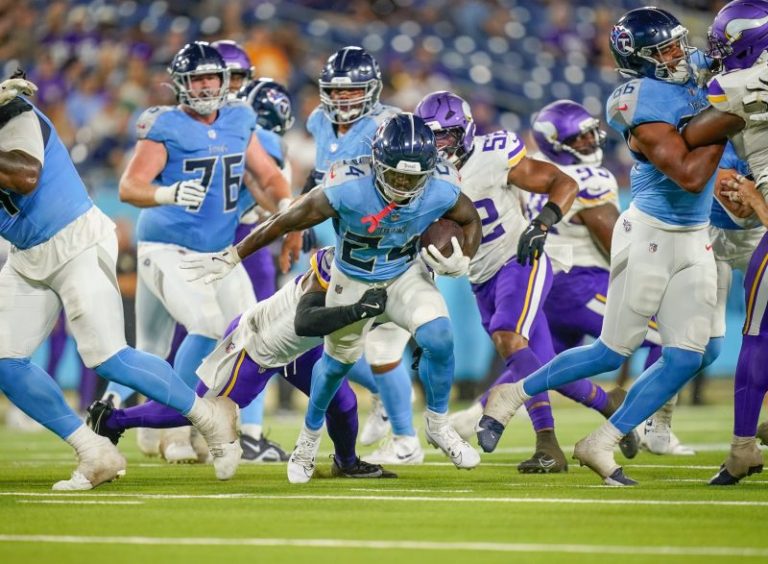The U.S. champion of the Little League World Series has been crowned in Williamsport, Pennsylvania, and Nevada will advance to play the International bracket champion, Chinese Taipei, in the 2025 title game.
Connecticut, the top team in the 2025 tournament with a perfect 4-0 record in U.S. bracket play, faced off against Nevada, which had a record of 4-1. In a fiercely competitive United States championship game, Connecticut fought hard for six innings, but ultimately, Nevada proved to be too strong, defeating Connecticut 6-2 to win the United States Championship.
Now, the winners of today’s games will move on and play in the Little League World Series Championship game on Sunday, August 25.
Nevada vs. Connecticut U.S. championship game highlights
Nevada defeats Connecticut to advance
Nevada defeated Connecticut 8-2 in the United States Championship game, advancing to the Little League World Series championship game on Sunday, where they will face Chinese Taipei.
Nevada explodes in the 6th inning
Nevada finds their rhythm in the sixth and final inning of the game, extending the lead to 8-2. Connecticut is now up to bat for the last time.
Connecticut unable to score in the 5th
After Nevada’s pitcher Garrett Gallegos walked two batters, he got into a rundown with Connecticut’s Ben Herbst and tagged him out at third base. Gallegos then struck out the final batter, preventing Connecticut from adding runs to the scoreboard.
Connecticut continues to battle
Connecticut’s aggressive base-running has helped them secure another run and now narrow Nevada’s lead 4-2.
Homerun for Nevada
Garrett Gallegos hits it out of the park for the first home run of the game for Nevada to extend the lead 4-1 against Connecticut.
Connecticut scores against Nevada
Connecticut is closing the gap, scoring a run at the bottom of the first inning to narrow Nevada’s lead. Nevada now leads 3-1 against Connecticut.
Nevada gets on the scoreboard first
Nevada capitalizes on a bases-loaded situation, getting the action moving and scoring three runs to take the lead in the first inning. Connecticut is now up to bat in the bottom of the first inning.
Nevada and Connecticut is underway
The Little League World Series United States championship game between Nevada and Connecticut has begun.
How to watch 2025 Little League World Series
The 2025 Little League World Series will be broadcast on ESPN platforms, with the championship game airing on ABC. Games will also be available to stream on ESPN+ and Fubo, which is offering a free trial to new subscribers.
Date: Saturday, Aug. 23
Times: US championship at 3:30 p.m. ET; International championship at 12:30 p.m. ET
TV: ABC
Stream: Fubo
Location: South Williamsport, Pennsylvania
Stream the Little League World Series on Fubo
2025 Little League World Series bracket: Scores, schedule
All times Eastern. For a full list of results, click here.
Saturday, Aug 23
International bracket championship
Chinese Taipei (Asia-Pacific) vs. Aruba (Caribbean), 12:30 p.m. | ABC
United States bracket championship
Connecticut (Metro) vs. Nevada (Mountain), 3:30 p.m. | ABC
Sunday, Aug. 24
Third-place game
Aruba vs. U.S. bracket loser, 10 a.m. | ESPN
Championship game
Chinese Taipei vs. U.S. bracket winner, 3 p.m. | ABC
What time is the 2025 Little League World Series today?
Saturday’s action in the Litttle League World Series begins at 12:30 p.m. ET with the International championship game between Aruba and Chinese Taipei. That game will be followed by the United States championship game between Connecticut and Nevada at 3:30 p.m. ET.
Where are Little League Series games being played today?
The International bracket championship game and the United States bracket championship will be played in Howard J. Lamade Stadium at the Little League World Series Complex in Williamsport, Pennsylvania.
2025 Little League World Series scores
For a full list of results, click here.
United States bracket
Wednesday, Aug. 20
Game 30: Connecticut (Metro) 7, Nevada (Mountain) 3
Game 32: South Carolina (Southeast) 7, South Dakota (Midwest) 6
Thursday, Aug. 21
Game 34: Nevada (Mountain) 5, South Carolina (Southeast) 3
Saturday, Aug. 23
Game 36: Connecticut (Metro) vs. Nevada (Mountain), 3:30 p.m. ET
International bracket
Wednesday, Aug. 20
Game 29: Chinese Taipei 7, Venezuela 3
Game 31: Aruba 3, Japan 0
Thursday, Aug. 21
Game 33: Aruba 3, Venezuela 1
Saturday, Aug. 23
Game 35: Chinese Taipei 1, Aruba 0
When is the 2025 Little League World Series championship game?
The championship and third-place games are scheduled for Sunday, Aug. 24 in Howard J. Lamade Stadium at the Little League World Series complex in Wiliamsport, Pennsylvania. The game follows the third-place game at Lamade Stadium.
LLWS third-place game — Sunday. Aug. 24
International bracket loser vs. U.S. bracket loser, 10 a.m. ET | ESPN
LLWS championship game — Sunday. Aug. 24
International bracket winner vs. U.S. bracket winner, 3 p.m. ET | ABC
Meet the Connecticut team at the 2025 Little League World Series
For the second time since 2017, a team from Connecticut will go to Williamsport, Pennsylvania, but this time from the Metro region bracket. Prior to 2022, Connecticut was a member of the New England region, but the Little League World Series expanded from 16 teams to its current format of 20 in 2022. This year, Fairfield National Little League (Fairfield, Connecticut) edged St. James-Smithtown Little League (Smithtown, New York), 12-1, to guarantee its spot at the LLWS. Connecticut has won four LLWS titles with the last coming in 1989 from Trumbull National Little League (Trumbull, Connecticut). — Sherlon Christie
Meet the Nevada team at the 2025 Little League World Series
The Las Vegas area appears to be a hot spot for Little League baseball talent and Summerlin South Little League (Las Vegas) is just the latest example. Summerlin South LL defeated Lone Peak Little League (Alpine, Utah), 6-3, in the Mountain championship game to earn a spot this year. According to Fox 5 Las Vegas, Summerlin South is the third straight team from Southern Nevada to represent the region at the LLWS. If Summerlin South can win the 2025 Little League World Series title, it will be the first team from Nevada to do it. — Sherlon Christie
Little League World Series: Who won 2024 tournament?
The 2024 LLWS finished with a thriller, as Florida claimed a 2-1 extra-innings victory over Taiwan.
The Lake Mary Little League team made history beyond lifting the Little League World Series trophy. In winning the game, they became the first Florida-based team to ever win the tournament, ending a run that saw eight previous LLWS finalists lose in the title game. — Sherlon Christie
Little League World Series Past Winners
Here is a list of the most recent champions of the event.
2024: Lake Mary, Florida
2023: El Segundo, California
2022: Honolulu, Hawaii
2021: Taylor, Michigan
2019: River Ridge, Louisiana
2018: Honolulu, Hawaii
2017: Tokyo, Japan
2016: Endwell, New York
2015: Tokyo Japan
2014: Seoul, South Korea
2013: Tokyo, Japan
2012: Tokyo, Japan
2011: Huntington Beach, California
2010: Tokyo, Japan
Who is in the Little League World Series: Meet the Teams
Since 1947, the Little League World Series has made summertime youth baseball a must-watch event.
When 20 teams (10 from the United States regions and 10 representing other regions of the world) descend upon on Williamsport, Pennsylvania from Aug. 13-24, all eyes will be on the 12-U baseball All-Stars on the various teams.
USA TODAY Sports’ Sherlon Christie has information on all of the Little League World Series teams.









